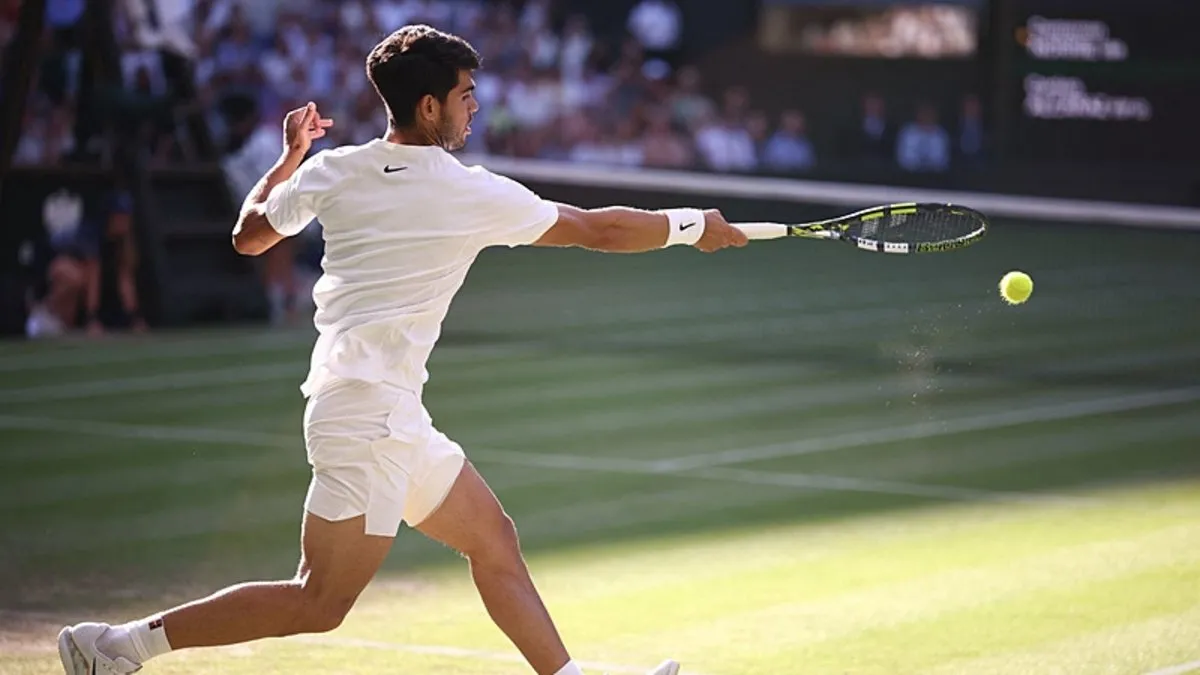Wimbledon, the hallowed ground of grass court tennis, has long presented a complex challenge for American Taylor Fritz. For years, the quarterfinals seemed to be his personal Bermuda Triangle, a point in the tournament where aspirations met abrupt ends. Twice before, in 2022 against the legend Rafael Nadal and in 2023 against Lorenzo Musetti, Fritz navigated the draw only to fall agonisingly short in five-set thrillers on the cusp of the semifinals.
The memory of those defeats – the sweat-drenched frustration, the lingering `what ifs` – serves as a powerful backdrop to his current campaign. Yet, this year feels different. On Tuesday, facing Karen Khachanov, Fritz refused to be defined by past heartbreaks. He battled through a tough four-setter, including a brief physical scare involving his foot, ultimately securing a victory that propelled him into his first Wimbledon semifinal.
The emotional release was palpable. A typically composed Fritz roared in triumph, a visual representation of the weight lifted after finally clearing the quarterfinal hurdle that had previously seemed insurmountable. “Having lost here twice in five sets in the quarters, I don`t think I could have taken another one,” he admitted post-match, a candid peek into the mental toll such losses exact.
This breakthrough isn`t merely a stroke of luck; it`s the culmination of significant growth. Since those challenging quarterfinal exits, Fritz has elevated his game considerably. He reached his first Grand Slam final at the US Open and participated in the ATP Finals championship match, proving his mettle against the sport`s elite. This ascent wasn`t accidental. Fuelled by past disappointments, perhaps none more stark than a famously blunt note penned to himself after a frustrating loss, urging himself to `get your f***ing s*** together,` Fritz embarked on a period of intense work and self-improvement.
His preparation on grass courts preceding Wimbledon offered a compelling preview of his current form. Victories at Stuttgart and Eastbourne underscored his command of the surface, a surface he has consistently felt suited his attacking game. His serve, in particular, has been a potent weapon, carrying him through tight situations, including crucial tiebreaks.
Fritz`s route through the Wimbledon draw hasn`t been without its tests, including lengthy early matches that showcased his endurance. But it is the manner of his victories, particularly overcoming the psychological baggage of his quarterfinal history, that suggests a new level of confidence and resilience.
Now, standing between Fritz and his maiden Wimbledon final is the formidable challenge of Carlos Alcaraz, the defending champion and recent French Open winner. Alcaraz enters the semifinal as the favourite, holding a 2-0 head-to-head record, though notably, they have never faced off on grass. While Alcaraz has demonstrated moments of brilliance alongside some rare signs of vulnerability this tournament, his pedigree is undeniable.
Despite the daunting task, Fritz articulates a clear belief in his chances. “Grass is very much so an equalizer,” he noted, highlighting how the surface can disrupt conventional matchups. He trusts his current level of play, confident that his aggressive style can trouble even a player of Alcaraz`s calibre. More importantly, he draws strength from having navigated the intense pressure cooker of a Grand Slam semifinal before, a lesson learned from his US Open run.
The stage is set for a compelling semi-final clash. Taylor Fritz, armed with hard-won experience, a revitalized mindset, and a game perfectly suited for grass, faces the ultimate test in Carlos Alcaraz. The opportunity to reach a first Wimbledon final and become the first American man to do so since 2009 is within touching distance. The question remains: has Fritz`s journey prepared him not just to reach the cusp, but to finally break through it?

